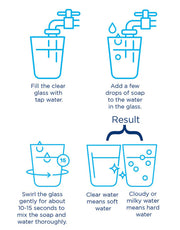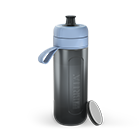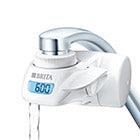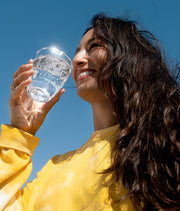
Know Your Water
Down under, clean water is just a tap away. Yet due to the long distances that our tap water travels from source to sink, you may find hidden passengers hitching a ride.
What is Hard and Soft Water?
High concentrations of dissolved substances like minerals and organic matter is defined as hard water. Soft water has relatively lower levels, but retain healthy doses of calcium, fluoride and magnesium good for your health.
Know your water with a simple lather test!
Testing your water using household items is a simple and easy way to check if you have hard or soft water. Discover the kind of water
you have at home in 3 easy steps.
To conduct the test, you will need the following materials:
- • Clean, detergent-free, clear glass
- • Tap water
- • Non-detergent liquid soap
Next, follow these steps:
- 1. Fill the clear glass with tap water.
- 2. Add a few drops of soap to the water in the glass.
- 3. Swirl the glass gently for about 10-15 seconds to mix the soap and water thoroughly.
Now, allow the soap-water solution to sit for around 1
minute. Have a look at the appearance of the water in the glass. If the water
appears cloudy or milky, it indicates the presence of minerals, indicating hard
water. On the other hand, if the water remains clear and does not form any soap scum, it suggests that your water is relatively soft. Simple!

 Shop All Products
Shop All Products Water Filter Jugs & Cask
Water Filter Jugs & Cask Water Filters
Water Filters Water Filter Bottles
Water Filter Bottles Water Filter Taps
Water Filter Taps






